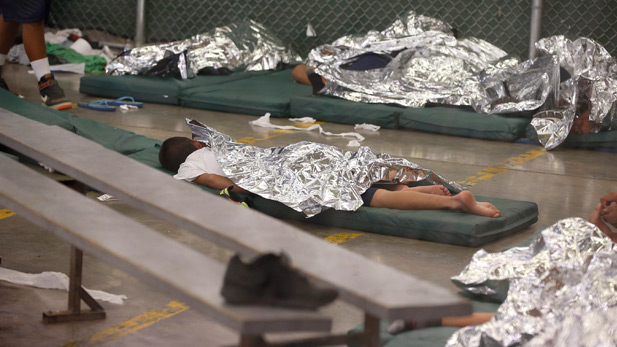 Child sleeps in one of the holding areas for Central American kids shelter in Nogales, Ariz.
Child sleeps in one of the holding areas for Central American kids shelter in Nogales, Ariz.Listen:
By Kate Sheehy, Fronteras Desk
The federal government’s program allowing children from some Central American countries to enter the U.S. as refugees may not help reduce illegal immigration, a report says.
The program was instituted last year when tens of thousands of Central American youth entered the country illegally, mostly in Texas. Hundreds were housed in Southern Arizona.
Refugee status is difficult to attain under U.S. law, and that makes the program ineffective at slowing immigration, the Migration Policy Institute study said.
"Even though those really dire conditions exist and really have been worsening in recent years from everything we know, that does not necessarily make you be eligible to be admitted as a refugee," the institute's Doris Meissner.
The Central American Minors Refugee/Parole Program allows immigrant parents who are in the U.S. lawfully to initiate a refugee application for their children back home. U.S. officials in Guatemala, Honduras and El Salvador interview children to see if they meet refugee criteria.
Applicants must show they are being persecuted based on race, religion or other factors, Meissner said.
More than 1 million immigrant parents may be eligible to apply. So far only around 3,300 applications have been submitted.

By submitting your comments, you hereby give AZPM the right to post your comments and potentially use them in any other form of media operated by this institution.